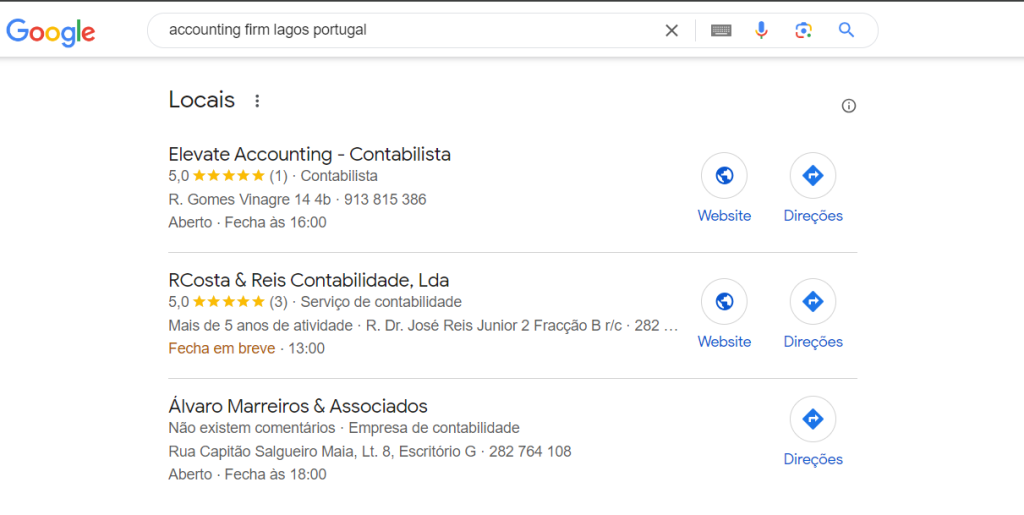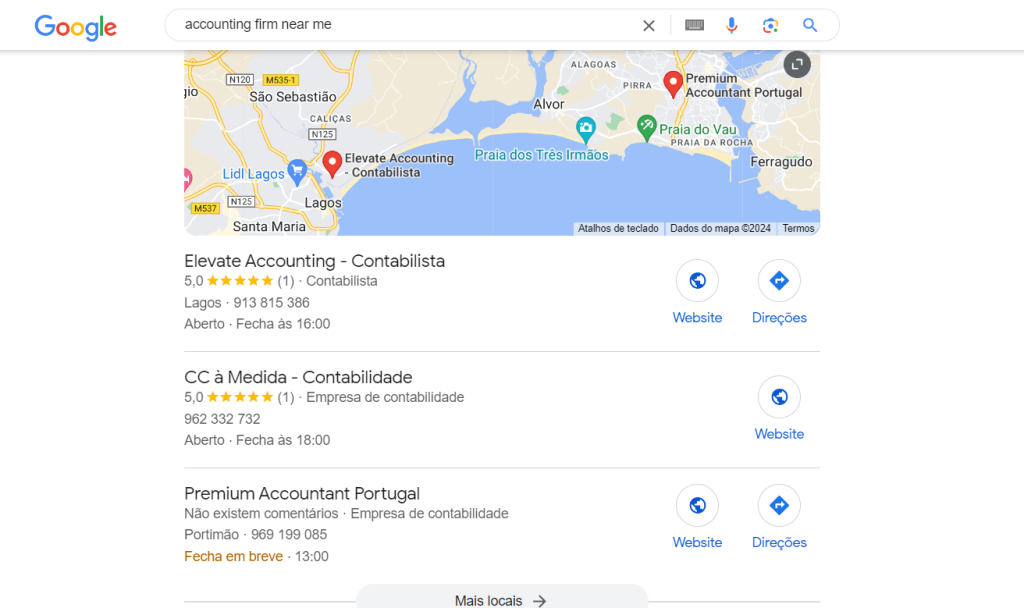Do you also want to uncover the best digital advertising techniques to make it easier for potential customers to find you? SEO is essential to make your accounting website more visible to small businesses. When used properly, SEO for accountants is a useful tool for driving targeted online traffic to your accounting business website.
What is SEO for Accountants?
Search engine optimization (SEO) increases traffic to your accounting website and improves your website’s presence on search engine results pages(SERPs). An optimized website will rank better in search results and be simpler to find on Google. SEO is not very difficult and can give your website the online progress it needs if implemented carefully.
Web crawlers (spiders or bots) scan billions of pages and search the internet for new pages by clicking links. After that, these pages are added to an index, from which results are derived. While performing SEO for accountants, you must understand how search engines work. You cannot optimize anything until you understand how it operates. As most users select from the first few search results, better ranks usually lead to organic traffic. Therefore, there are a lot of benefits to using SEO for accountants successfully.
Furthermore, using Local SEO wisely as part of your digital marketing plan allows you to reach local customers actively searching for your product or service. It allows your business to find new customers and focus on website visitors, giving you a benefit over competitors.
SEO for Accountants is more affordable than other marketing techniques for generating leads. Your SEO approach can lead to record-breaking results if you integrate paid, inbound, or outbound marketing with organic SEO. It is better to maintain a library of written content so that you can produce marketing content that addresses relevant issues and offers helpful information.
Some Key Facts Of SEO For Accountants
- SEO for accountants is crucial to increase the exposure of their website and draw in new customers.
- Some important components of SEO for accountants include effective keyword research, on-page optimization, off-page optimization, and local SEO.
- Keyword research is essential to find relevant words that define your accounting services and target audience.
- On-page optimization offers unique, high-quality content that gives customers accurate and helpful information.
- However, off-page optimization covers building high-quality backlinks, making use of online directories, and using social media platforms.
- Local SEO is further important for accountants to increase their online visibility and draw in local clients,
- Last, but not least, mobile-friendly websites, user experience optimization, content marketing, and analytics monitoring are some best strategies for SEO for accountants.
Why Accounting Leaders Prefer SEO For Accountants?
What are the foundations of an effective SEO for Accountants?
Setup Google My Business -


Write Quality Blog Content -
If you know how to optimize your blog entries for search engines, you can use them to increase traffic to your website.
Google is far more likely to want to list you on their first page if your blog article is well-written, highly relevant, and meets search intent.
Because Google Search is so intelligent, it can determine which blog posts are of the highest caliber and which ones would best meet users’ search queries.
Therefore, prioritize quality over quantity to help your blog entries rank highly in search results.
Research Relevant Keywords -
You may write the best blog article in the world, but if no one is interested in that issue, it is pointless from a strategic aspect because it will not generate any traffic.
To address this, utilize a keyword research tool to see how many people search for a term (i.e. a search query) on Google each month and how difficult it will be to rank your blog post on Google’s first page of search results.
For example, using the free Ahrefs keyword generator, you can see that this “how to do a cash flow projection” keyword yields the following result:
This indicates that 100 individuals seek for this term monthly, which is a respectable volume. However, this tool indicates that the keyword has a medium difficulty level of 23 out of 100, meaning that unless you’re an experienced blogger, you might want to opt for a phrase with a lower difficulty value.
The foundation of your SEO marketing efforts is this approach.
Get Backlinks -
A backlink is a link pointing to your accounting website from another website.
This is an illustration of a backlink pointing to my website from Xero’s blog page:
A backlink indicates to Google that you are being mentioned by others and that your website is reputable, valuable, and beneficial. The more backlinks that are pertinent to your website, the more effective SEO will be in raising your ranking.
However, not every backlink is made equally. Do some research on this subject before implementing this SEO technique, in my opinion.
Write Guest Blog Posts -
A backlink is a link pointing to your accounting website from another website.
This is an illustration of a backlink pointing to my website from Xero’s blog page:
A backlink indicates to Google that you are being mentioned by others and that your website is reputable, valuable, and beneficial. The more backlinks that are pertinent to your website, the more effective SEO will be in raising your ranking.
However, not every backlink is made equally. Do some research on this subject before implementing this SEO technique, in my opinion.
Use Internal Links -
Any connection on your website that takes users from one page to another is considered an internal link. Links are used by both search engines and your users to locate material on your website. Links are how users move about your website and locate the material they’re looking for.
As an illustration, suppose you have a highly significant blog article on your website, to which fifteen other pages connect. This can increase your chances of ranking better on Google for that page by informing Google that this is a high-value post and that they should focus on it more.
Optimize Existing Content -
Making ensuring that information is written so that it may reach as many target audiences as possible is known as content optimization. As part of the process of optimizing content, relevant links, meta and title tags, and the presence of related keywords should all be added.
Boost Your Accounting Firm’s Website -
Use Technical SEO for Accountants -
Use Yoast to Tweak On-Page SEO Optimizations -
Improve Your Meta Descriptions -
Make Sure You Have Mobile Friendly Website -
Get Google Reviews -
Seek a Professional SEO for Accountants' Audit -
Use Chatbots -
Apply Schema Markup -
Update Your Published Content Regularly -
Appealing Website -
What are the key elements of SEO for Accountants?
A strong SEO strategy includes several key components like local SEO, on-page and off-page optimization, and efficient keyword research. Using these essential components of the SEO for Accountants’, you can grow online.
1. Keyword Research
Search engines analyze your website by reviewing its HTML, checking if keywords are included in the text, URL, HTML tags, and meta descriptions and analyzing your XML sitemap. Therefore, keywords are important for on-site SEO for Accountants. These are phrases or words that accurately represent the information on your web pages. Therefore, you should conduct keyword research and select suitable words to use strategically across your website.
You can use SEO for Accountants to go beyond the simple searches by using keywords to focus on the particular services you offer to potential customers. Some examples of these keywords are accounting, VAT, payroll, cloud accounting, wealth management, corporate finance, tax planning, and secretarial services.
The next strategy to generate keywords that potential consumers are searching for is to use current affairs and topical issues, such as budgets and the resulting tax changes. You should also make sure that keywords are included within the website’s content, URLs, and page names.
2. On-Page Optimization
Content continues to be key for on-page optimization. Producing high-quality content is the most effective approach to improve user experiences and score well for keywords.
High-quality content offers customers a better experience, therefore search engines place it at the top of their results pages. You can easily fulfil standards for high-quality content by producing original, unique pages that offer accurate, helpful information on areas and give users what they want when they click through to your accounting business website. However, if your content has too many keywords and is poorly written, you should avoid duplicate, automatically generated, and other low-quality content.
Moreover, meta tags are essential to SEO for accountants. You can see how a term appears in the title of a page when you enter any keyword into a search engine. Google uses the title of your page to determine how relevant it is for that particular term. This also applies to that page’s description.
What are the best practices for SEO for Accountants?
How can you monitor the success of your SEO for Accountants?
Remember that SEO for Accountants is a continuous effort. Regular tracking and changes are important for long-term success. Businesses monitor the success of SEO for Accountants in the following ways:
- Traffic Analysis
Track the overall organic traffic of your website. You can monitor search engine traffic using tools such as Google Analytics. It is essential to examine the results of specific keywords. Determine which high-performing keywords get the most traffic, then focus on improving content for them. - User Engagement
Evaluate the bounce rate to determine how interesting your content is. A lower bounce rate usually means that visitors find your content interesting and stick around. Moreover, it is also important to assess how much time visitors spend on your site. Greater stay periods are usually linked to higher-quality content. - Ranking Metrics
Make sure your target keywords rank regularly. Google Search Console, Ahrefs, and SEMrush are a few tools that can offer you information on keyword ranking. Focus on information panels, highlighted snippets, and other SERP features. Optimizing these can help you increase your visibility on search engine results pages. - Monitoring Conversions
Create conversion targets in Google Analytics. Keep track of the number of visitors who successfully execute targeted actions, such as form submissions or purchases. - Competitor Analysis
Compare your rankings with those of your competitors. Using tools like Ahrefs, identify areas where you can improve as they are also attempting to move up the ranks. - Technical SEO
Check for crawl issues with Google Search Console or similar tools regularly. Manage issues like crawl difficulties, duplicate content, and broken links. - Backlink Analysis
Keep an eye on the relevancy and quality of the backlinks. Moz and Ahrefs are two tools that can be used to find new backlinks and analyze their authority.
